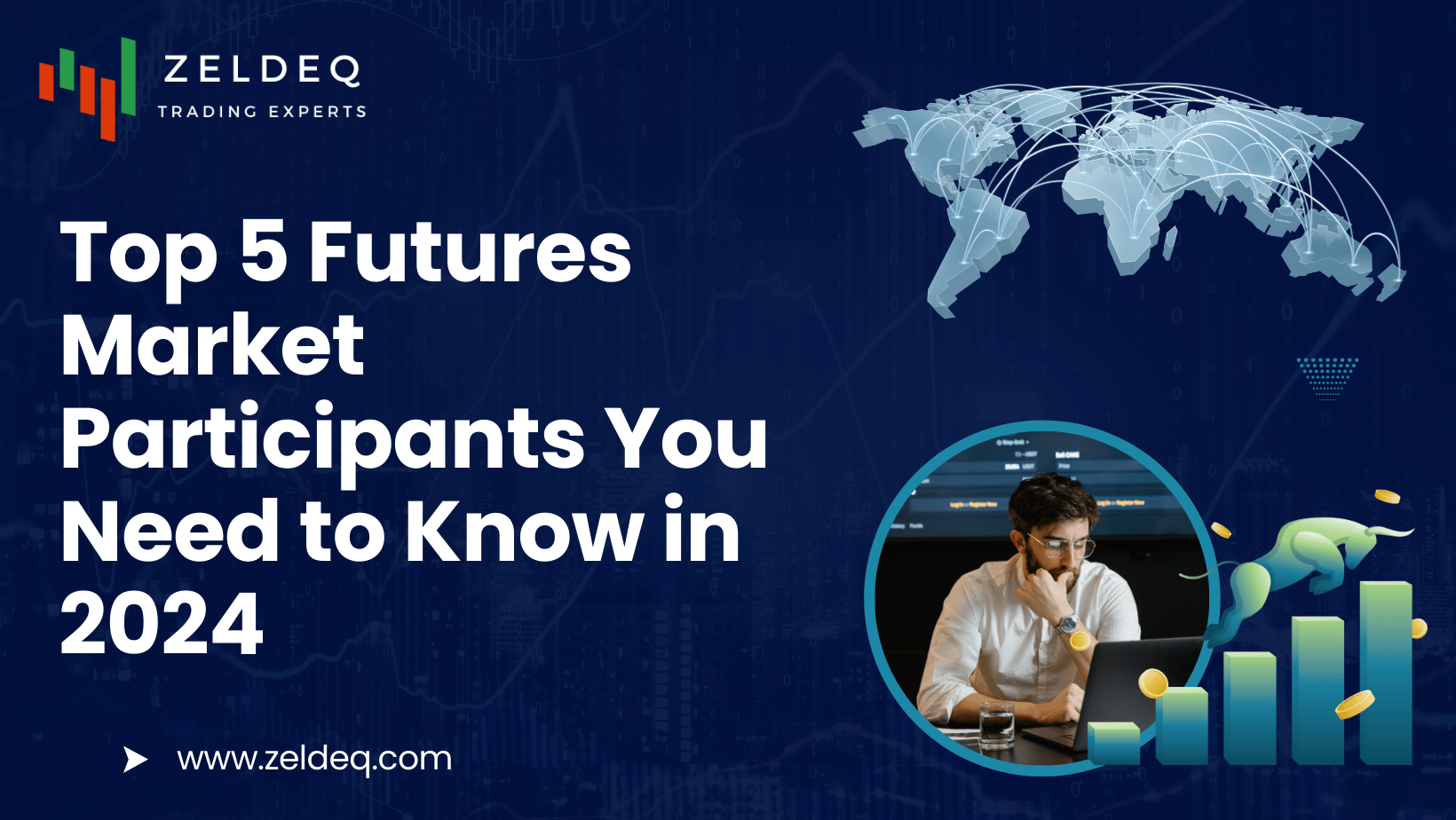Table of Contents
Introduction
The futures market is a dynamic environment where various participants play crucial roles in maintaining market efficiency and liquidity. Understanding who these players are can provide valuable insights into how the market operates and how you might navigate it in 2024. In this article, we’ll explore the top five futures market participants that you need to know, breaking down their roles, motivations, and impacts on the market.
1. Hedgers
Hedgers are typically producers or consumers of a commodity who aim to reduce the risk of price fluctuations. They use futures contracts to lock in prices for the underlying asset, thereby protecting their profit margins.
Who Are They?
- Producers: Farmers, miners, and manufacturers who want to secure the price of their products.
- Consumers: Companies that rely on raw materials, such as airlines hedging against fuel price increases.
Why They Matter
Hedgers stabilize the market by providing a counterbalance to speculative trading. When prices are volatile, hedgers’ demand for futures contracts can help absorb some of that volatility, making the market less erratic.
Hedgers play a vital role in reducing price risk, ensuring that producers and consumers can plan their operations more effectively.
Example
Consider a farmer who grows wheat. By selling a futures contract at $5 per bushel, the farmer secures that price regardless of market fluctuations at harvest time. This strategy mitigates the risk of price drops that could result in lower profits.
2. Speculators
Speculators are investors looking to profit from price changes in the futures market. Unlike hedgers, they do not have an underlying interest in the commodity; their goal is purely financial gain.
Who Are They?
- Individual Investors: Retail traders using platforms like E*TRADE or TD Ameritrade to buy and sell futures.
- Institutional Investors: Hedge funds and investment firms that have more substantial resources and access to market data.
Why They Matter
Speculators add liquidity to the market, making it easier for hedgers to execute their strategies. Their willingness to take on risk can lead to more efficient pricing and can also contribute to price discovery.
Speculators, often seen as risk-takers, help in establishing market prices through their trades, which reflect their expectations of future events.
Example
Imagine a trader who anticipates that the price of oil will rise due to geopolitical tensions. By buying oil futures contracts at $70 per barrel, the trader stands to profit if the price climbs to $80.
3. Arbitrageurs
Arbitrageurs exploit price discrepancies between different markets or financial instruments. They play a sophisticated game, often taking advantage of momentary price differences to secure risk-free profits.
Who Are They?
- Professional Firms: Companies that specialize in arbitrage trading, often using advanced algorithms and high-frequency trading strategies.
- Individual Investors: Savvy traders who capitalize on inefficiencies in the market.
Why They Matter
Arbitrageurs contribute to market efficiency by ensuring that prices remain consistent across different markets. Their activities help to eliminate price discrepancies, making the market fairer for all participants.
By capitalizing on price differences, arbitrageurs help to align prices across markets, benefiting all market participants.
Example
If gold is priced at $1,800 per ounce on the futures market and $1,850 in the spot market, an arbitrageur might buy gold futures and sell the physical commodity. This action helps bring prices closer together.
4. Brokers
Brokers act as intermediaries between buyers and sellers in the futures market. They facilitate transactions and provide valuable information and insights to traders.
Who Are They?
- Full-Service Brokers: Offer personalized advice and a range of services, often at a higher cost.
- Discount Brokers: Provide basic trading services with lower fees, appealing to cost-conscious traders.
Why They Matter
Brokers are essential for connecting different market participants. They provide liquidity and can offer insights that help traders make informed decisions.
Choosing the right broker can significantly impact your trading success; they provide the tools and information necessary for effective trading.
Example
A trader looking to enter the futures market might reach out to a broker for advice on which commodities to trade, the best times to enter positions, and risk management strategies.
5. Exchanges
Exchanges are the marketplaces where futures contracts are traded. They set the rules for trading, ensure transparency, and provide a platform for participants to execute their trades.
Who Are They?
- Major Exchanges: The Chicago Mercantile Exchange (CME), Intercontinental Exchange (ICE), and others that facilitate futures trading.
- Electronic Platforms: Online trading platforms that allow for rapid execution of trades.
Why They Matter
Exchanges provide the infrastructure for trading and ensure that transactions are executed smoothly. They also collect and disseminate vital market data that informs all participants.
Exchanges act as the backbone of the futures market, providing the necessary framework for trading activities and ensuring a fair marketplace.
Example
The CME Group, one of the largest futures exchanges globally, offers a wide range of products, from agricultural commodities to cryptocurrencies, making it a critical hub for market participants.
Conclusion
Understanding the roles of these five key futures market participants—hedgers, speculators, arbitrageurs, brokers, and exchanges—can provide you with a solid foundation for navigating the complexities of the market in 2024. Each player contributes uniquely to market dynamics, offering opportunities and challenges for both seasoned investors and newcomers alike.
FAQs
1. What is a futures market?
A futures market is a financial exchange where people can buy and sell contracts for the future delivery of assets, such as commodities or financial instruments.
2. How can I start trading futures?
To start trading futures, you’ll need to open an account with a broker, deposit funds, and familiarize yourself with the contracts you wish to trade.
3. What are the risks associated with futures trading?
Futures trading involves significant risks, including market volatility, leverage risks, and potential losses exceeding your initial investment.
4. Can I profit from futures trading without owning the underlying asset?
Yes, speculators often profit from futures trading by betting on price movements without ever taking ownership of the underlying asset.
For additional insights on trading strategies and instruments, check out our guides on Essential Trading Costs and Fees Beginners Should Know and 10 Essential Steps to Start Trading Successfully in 2024.


